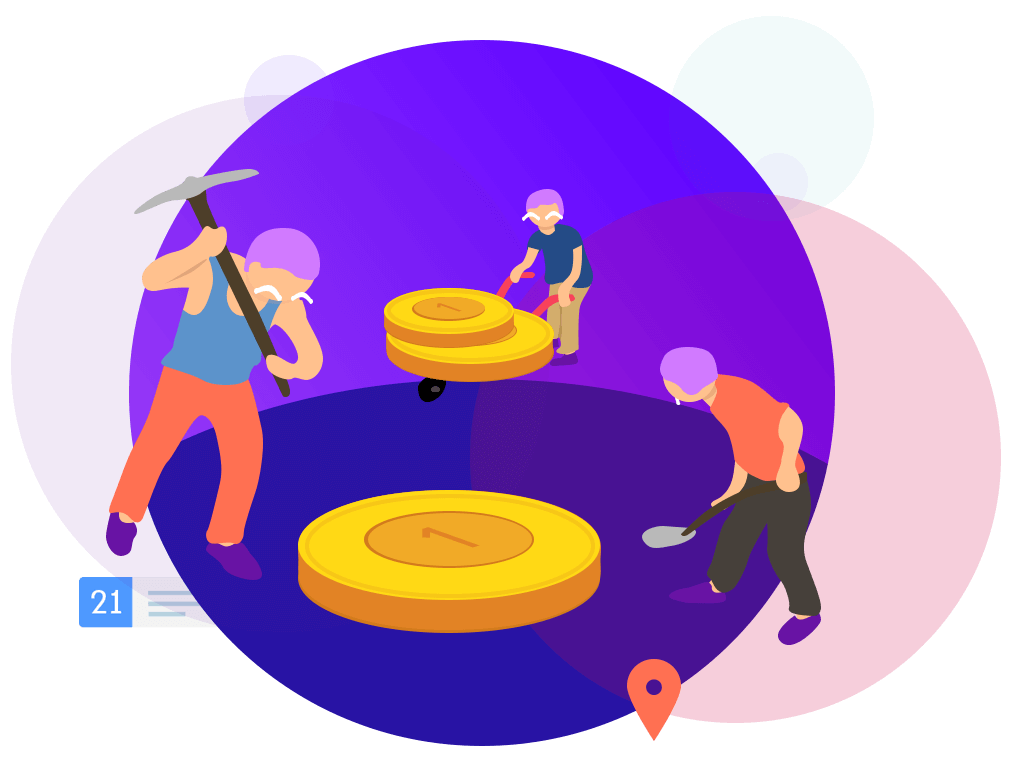Bad SEO Practice
Learn how and why NOT to practice unethical or bad Search Engine Optimization
In the early days of search engines, building a website was a fairly organic process. You listed keywords that matched what your site was about, you made sure the different search bots could access all your pages, you tried to keep things clean and simple and hoped for the best.
Today, everyone searches on Google. This means that you ought to be spending a lot of time thinking specifically about how to be placed highly and broadly on Google.
Unfortunately this means you need to do Search Engine Optimization. I say on purpose “unfortunately” because some websites focus too much on SEO instead to the quality the visitor should receive, which is a great pity.
During these same early days, many web owners discovered how to manipulate these search engines to get a higher ranking by using artificial and unethical manipulation. In these days the SE algorithms were pretty transparent and it was not difficult to ‘fool’ the search engines and by doing this, they also mislead the visitors by showing sites in high ranking positions which they didn’t ‘deserve’.
But like fighting against computer viruses, search engines started to fight back (especially Google, remember the famous Florida Update in 2002) by using specific algorithms, filters and penalties to stop spammy sites from being indexed. And it became harder and harder to use so called “blackhat” techniques (unethical techniques).
Today your site will be penalized when search engines discover when your site is using spam techniques. This means a penalty on lower ranking or a complete ban from the index.
Therefore it is amazing that many websites are still using ‘old’ SEO spam techniques to try to get a higher ranking. Sometimes by accident, but also still on purpose.

Keyword Stuffing
Any artificially inflated keyword density is keyword stuffing and you risk getting banned from search engines. If you put your keywords (or phrases) on a certain page, too close after each other, in such way the content will be unreadable for the human eye, then this is keyword stuffing.
Risk: ranking penalty, or the risk to get banned from the index.
Solution: Use the same keyword (phrase) maximum 3 or 4 times on one page and use synonyms, keep to reading content ‘natural’ for human eyes.
Duplicated content
When you have the same content on several pages on your site, this will not make your site look larger because the duplicate content penalty (see: Google penalties) kicks in. But in some cases (but less, or no penalty risk) duplicated content applies to pages that are also on other sites. For example article syndication. In this case you will not get penalized for using duplicated content. But the ranking of the page (in your site) where this content is published will be low. Unless you are the original owner (writer) of this article.
Risk: ranking penalty, or the risk to get banned from the index.
Solution: keep you site up with only unique content.
Illegal content
When you use other people’s copyrighted content without their permission or when you use content that promotes legal violations, you can get banned from the search engines.
Risk: get banned from the index.
Solution: simply don’t do this!
Invisible text
This is also mentioned in our Wrong Web design article.
Once again, do not use same font color on same background color to use for stuffing keywords. Including so called smart solutions in CSS.
Risk: get banned from the index.
Solution: simply don’t do this!
Cloaking
Cloaking is a real illegal technique. Crawlers see one page (of course highly optimized for a certain keyword) and the visitor sees another version of the same page. They know whether it’s a crawler or a visitor based on their IP address and/or user-agent.
Risk: get banned from the index.
Solution: simply don’t do this!
Bad neighbours
Any site that is using unethical SEO techniques can be considered as a bad neighborhood. This means that if you link to one of those sites, you will be treated as one of them. Like in real life: if you choose outlaws for friends, you are considered to be one of them.
So outbound links to link farms and other suspicious sites will do your site harm, in terms of getting a penalty or even get banned from the index.
But if a so called bad neighborhood is linking to you (which is not reciprocal), then it will do no harm for your site. If it was, it would be an easy way to get rid of your competitors 🙂
Risk: Lowering on page rank or even get banned.
Solution: Select carefully the site you are linking to. Check the site well where you want to link to.
More important: Check regular all outbound links to see if the site you are linking to is still the same. One time I had a link to a certain website (domain). After some time, the original owner quit his web business and someone else took over his domain (happens a lot). It appeared that the old domain name turned into some spammy porno site. And Google didn’t liked that, because this link had no any relevant correspondence with my website. Beside that, this kind of sites very often use unethical SEO techniques.
Conclusion
If you practice SEO the way search engines want you to do (by following their quality guidelines), then you don’t have to be afraid of Google penalties. More importantly, build your website for your readers who are real human being, not for Google bots so you could avoid the SEO nightmares.

